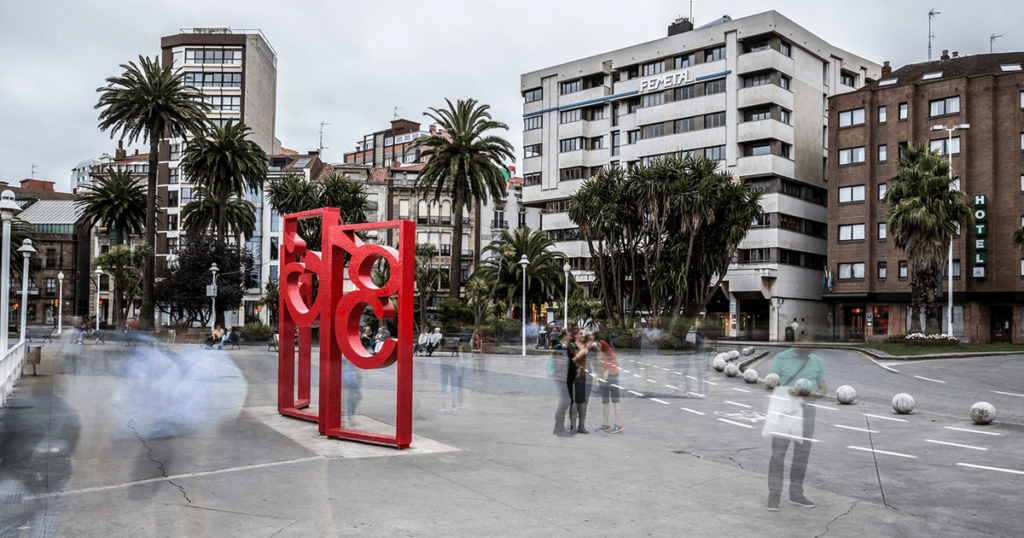
Rounding a corner on a little-used lane just a six-minute jog from my house, I saw a cherry-colored car coming toward me. I jogged on. The driver, a woman, seemed to be waving, then pulling over. She put her window down, and, thinking she must be an acquaintance, I slowed and stopped, ready to greet her. Who could it be, I wondered, looking into the car. But I didn’t know her.
Sorry, she said. Sorry to bother you. But I’m lost. Perdida, she said. Just as in English, the verb to lose, perder, is used to say you don’t know where you are. The same verb is used when you miss a bus, a train, or an opportunity, or to say you don’t understand a point or catch a joke. I know this verb well.
The woman said she was looking for the Camín de Bérbora, Bérbora Street.
The name sounded familiar, but I didn’t know where it was, so I shook my head. Sorry, I said. She held up her phone and explained that she kept losing the signal. “Look,” she said, showing me the screen. I shook my head. “I’ve no idea,” I told her. “Sorry.”
“I’ve been going around in circles.”
I thought of a trip many years ago to Toledo with my then-boyfriend. We’d arrived at night and couldn’t find the street that would take us out of the old city to our hotel, beyond the wall, down by the river. We kept circling too.
The woman turned her phone this way and that, helplessly. I told her that a guy was coming along behind me walking his dog, and maybe he’d know. I looked over my shoulder. “There he is,” I said, and then I wished her luck and trotted on.
In Toledo, we kept finding ourselves circling back into the old city in a maze of one-way streets. We had a map, but it didn’t help. We asked directions, but that did no good. My boyfriend was driving, and for a man imperturbably calm, he was getting quite flustered, I recalled.
Now, leaving the woman behind, I turned left, thinking to myself that I run this way at least once a week, and I don’t even know the street names. I turned left again, and, still thinking about street names, I looked for one. There it was, a thick oval plaque set in a wall with the name in raised letters: Camín de Bérbora.
I was two minutes, if that, from the woman. I did an about-face and ran back, right, then right again, passing the man and dog and seeing the cherry-colored car beyond, still pulled off the road but turned around now, the woman still consulting her phone. I ran right up to her with the good news. The man, she said, had told her the opposite direction. So I insisted. “I saw the sign. It’s right around the corner.”
She looked uncertain, but she followed my directions, and coming along a few minutes behind her, I saw her car parked at a house.
In Toledo, we’d stopped the car. Under streetlights, we studied the map calmly, made out where we were, where we wanted to go, and what route to take. Soon we were there, our earlier agitation made laughable by the warm light from the lamps at the hotel entrance, diffuse in the mist gently rising from the nearby river. As he turned off the ignition, my boyfriend told me there was no one he’d rather be lost with. Several years later, running through the Barcelona airport with two children hanging on to us, desperate to make a connecting flight, this man and I skidded around corners. The children squealed in delight. We arrived huffing at the gate, flapping our boarding passes. Inside the plane, sinking into our seats, the kids already in theirs, he said he wouldn’t want to do that with anyone else. Another man when we were no longer a couple but keeping close as friends, told me that he valued friendship above everything. Another ex told me there was no one he’d rather have as an ex. All three people had expressed their strong appreciation for me. And where were they all now?
I ran on, hardly seeing the street, my thoughts busy. These three people, despite expressing such esteem, had disappeared from my life, assuring that it would not be me they were lost with, had as a friend, traveled alongside, or had for commiserating with. So much for declarations, you might think. But they’d all meant it. At the time. And then that time passed. Though I can’t remember it, surely there’s someone about whom I said essentially the same: the best pool partner, the best person for a Sunday walk, the best shoulder to hang my head on. And then that had ceased to matter.
Another few kilometers on, I looked up, not quite sure for a moment where I was. Then, as if by magic, the dirt road under my feet, the hedges and fields to my side, the highway behind me I’d already crossed, the other highway at the top of the hill, the 20 minutes from there back home—all of this and more, reappearing and settling into place around me, even what was behind me, even what was ahead. I wasn’t lost. And so I sank again into reverie.

